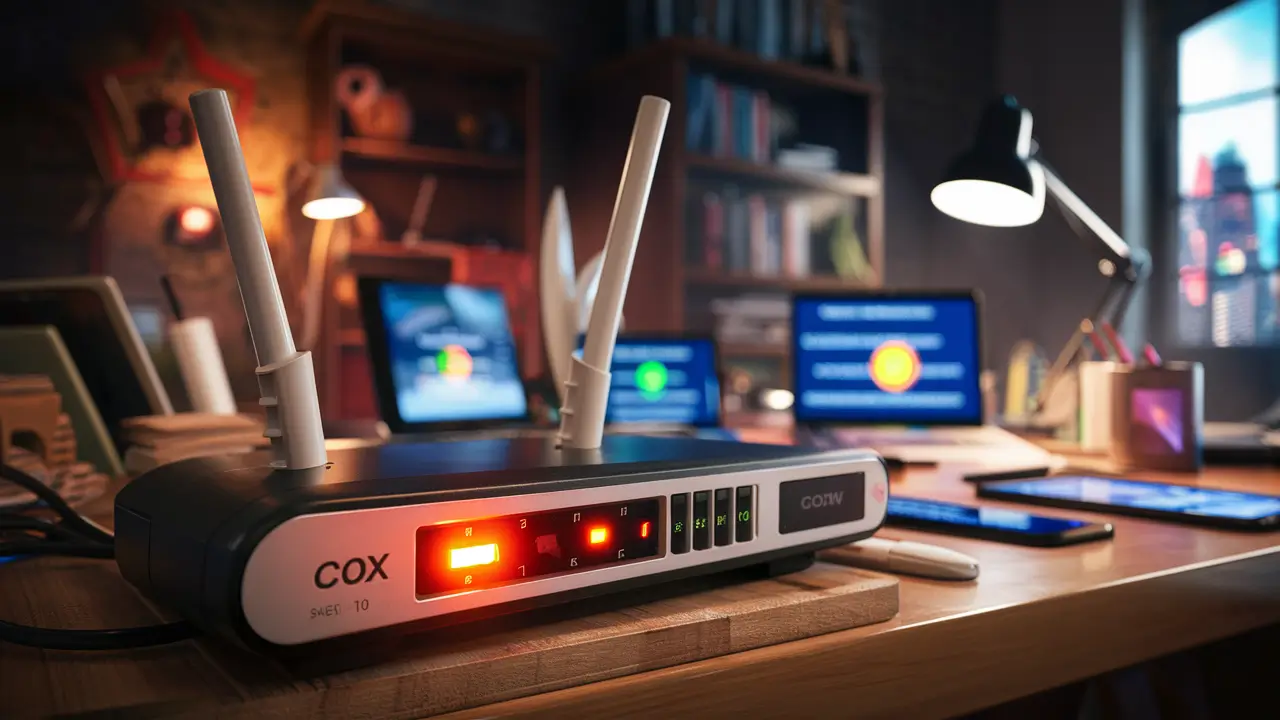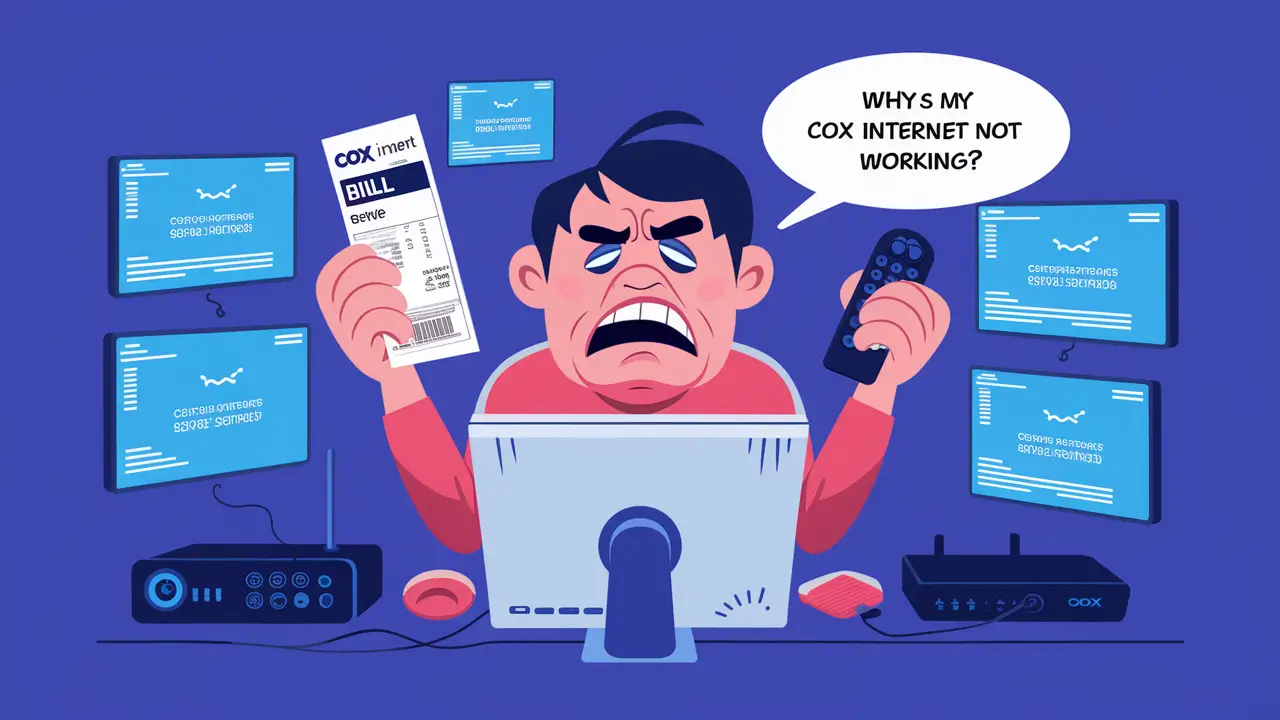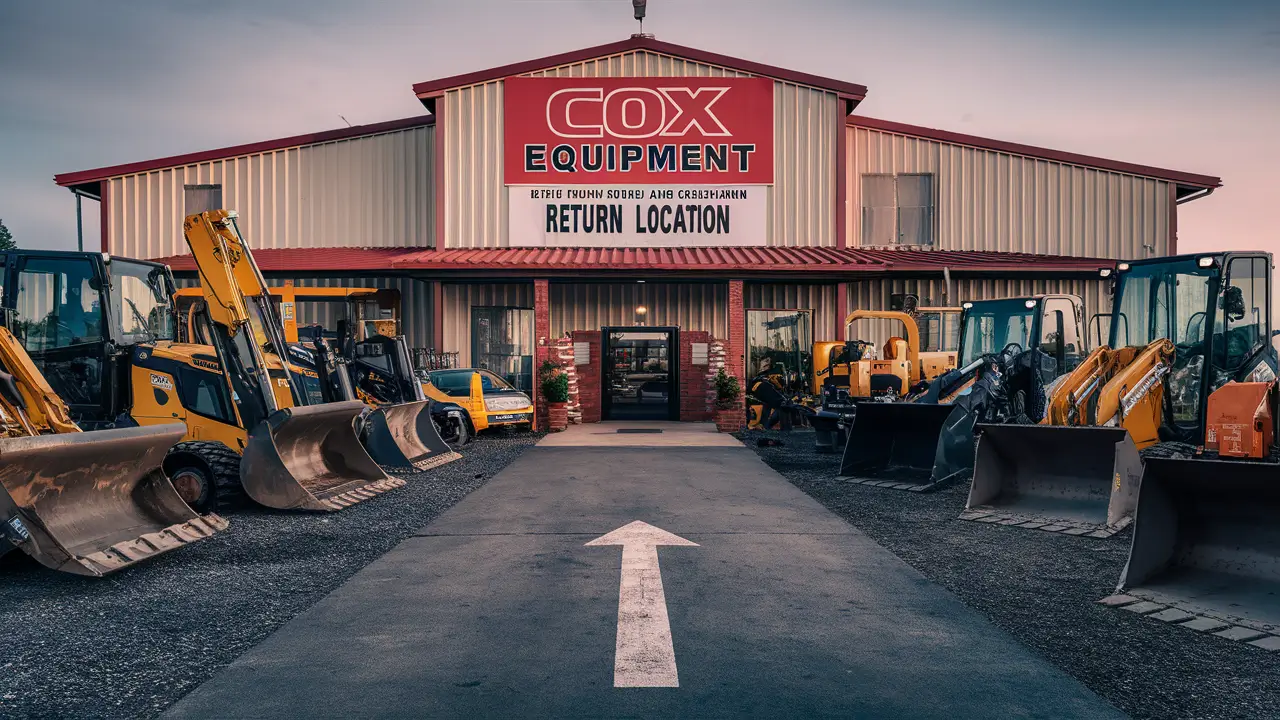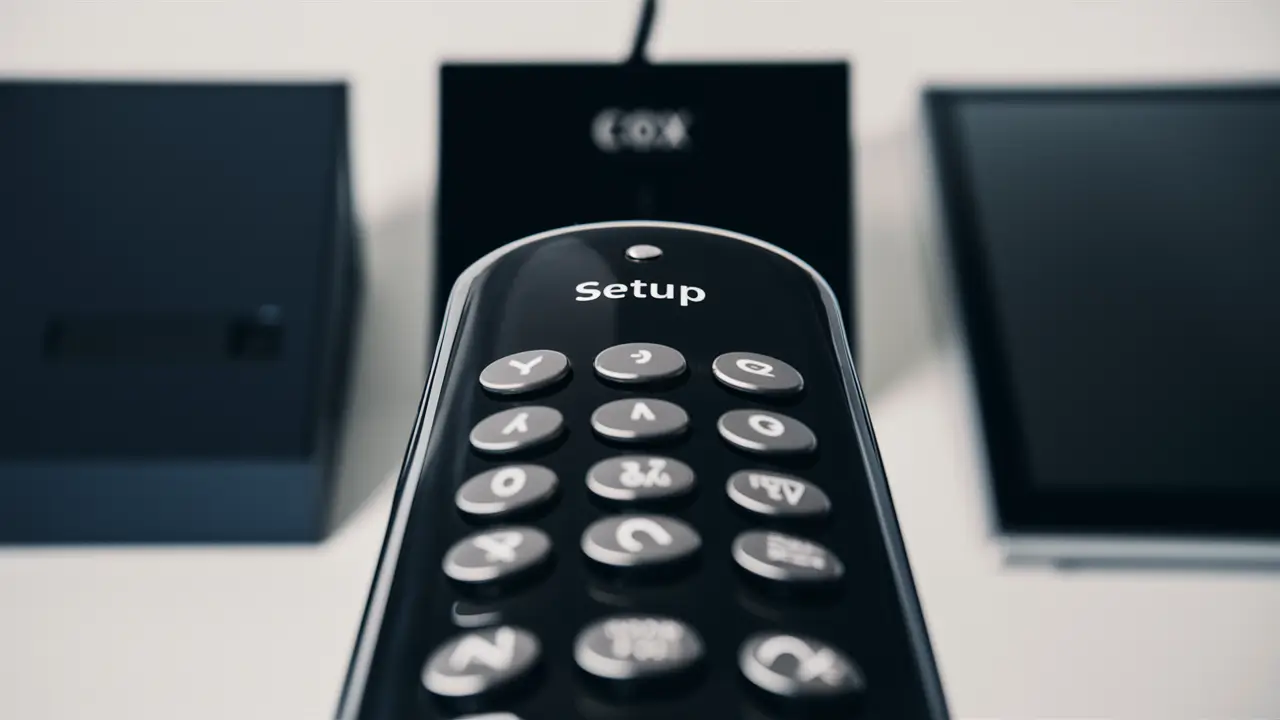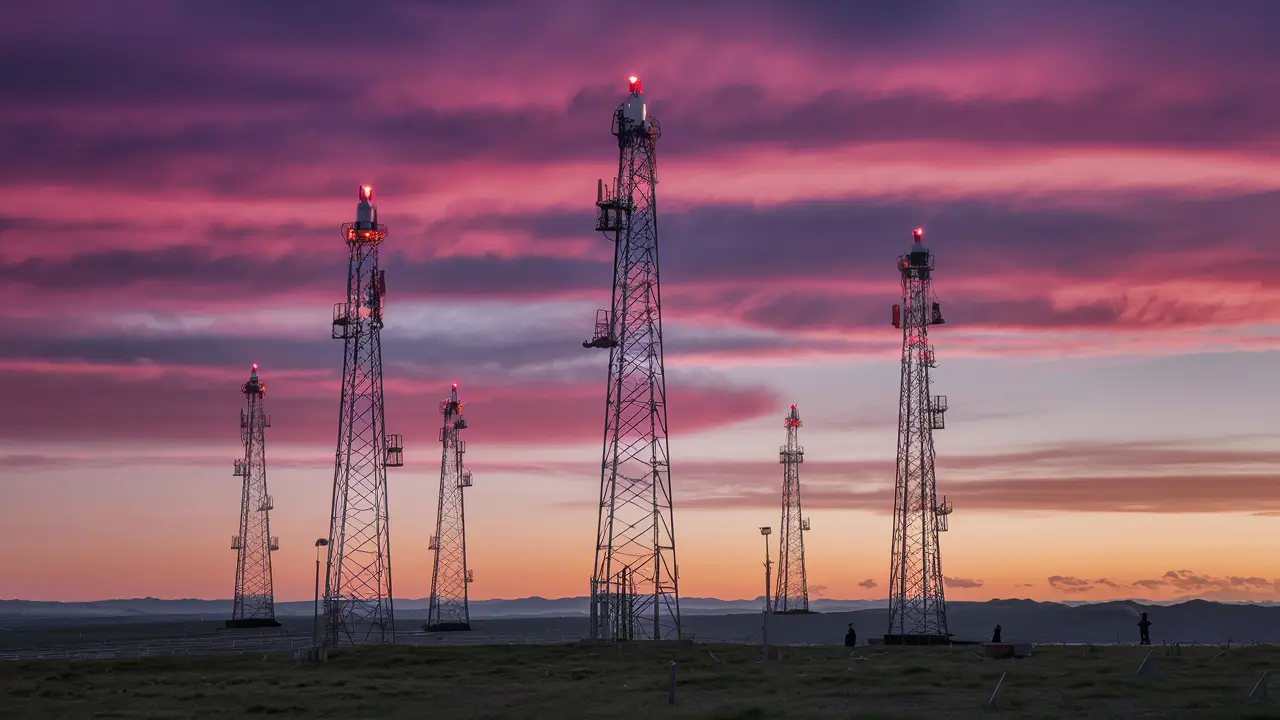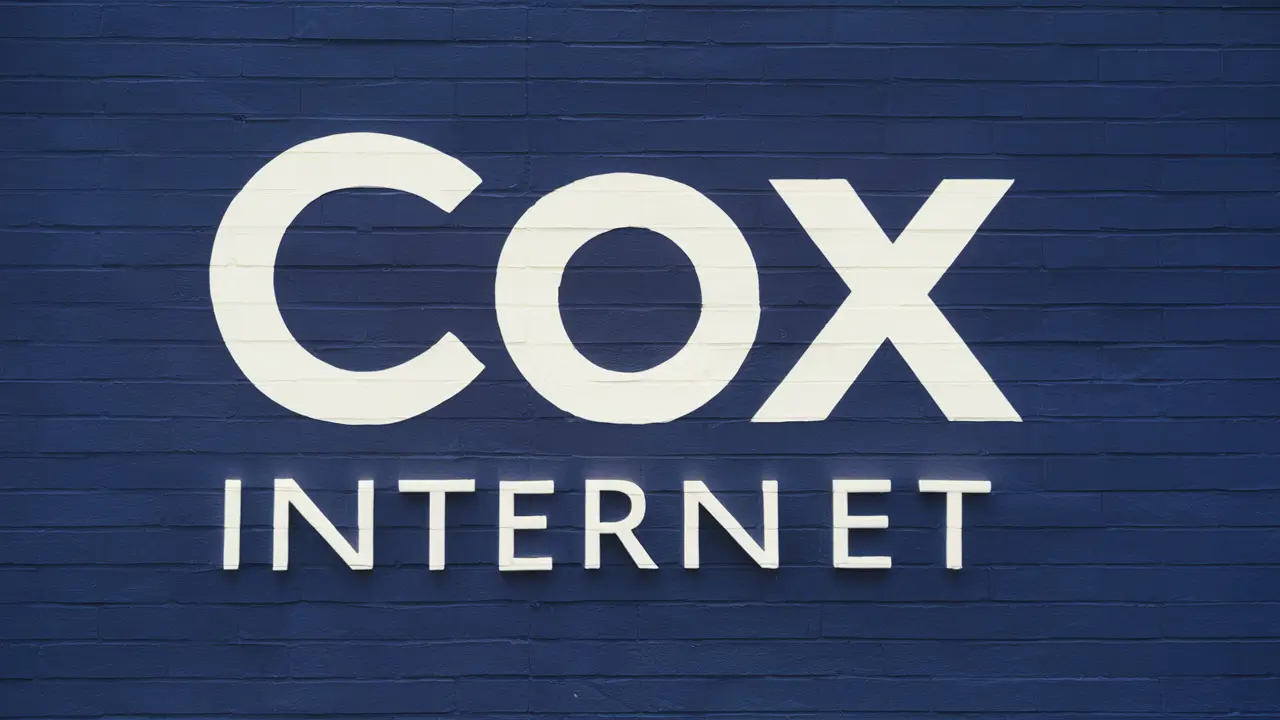
The worst feeling is when your Cox internet connection appears to be slow to support your internet usage needs. If one has a slow internet connection or a connection that intermittently drops, it becomes difficult to stream videos, play online games, engage in video conferencing, or even browse the internet. Here are the possible reasons why your Cox internet might be slow; Below is a breakdown of the main causes and how they can be solved.
Old, Outdated Equipment
The first common cause of your Cox internet appearing slow is that it could be due to outdated equipment. Your modem, router, or other equipment may be several years old and may not support the high broadband speeds of today. Ensure all of your equipment complies with or surpasses the tiers and speeds contracted with Cox. For instance, an old modem can fail to synchronize or sustain higher speed DOCSIS 3.1 or DOCSIS 3.0 connections that are prevalent.
Switching to more modern hardware that is supported and endorsed by Cox for your selected tier usually helps a lot in terms of speed and connectivity issues. Refer to the supported hardware lists of your equipment and consider their advice or leasing a gateway from Cox. This makes certain your hardware does not limit the maximum subscribed Internet speed.
WiFi Interference and Range
The WiFi signals from your router can be disrupted and weakened over distance. Objects such as thick walls, metallic objects, other wireless devices, and even cordless phones reduce your wireless signal quality. This interference implies that one can browse at a slow pace, or even lose internet connectivity at range or in some sections of the house.
If WiFi is the problem, then your devices will be slower than devices connected to the router through wired cables. Maybe, you should try positioning your wireless device closer to the router or even in the same room with it. If speeds decrease, this can be due to WiFi interference or range problems. The wireless speeds may be improved by obtaining the newest WiFi 6 router technology. Or you could get a WiFi mesh system to provide a better WiFi connection from multiple points as a home.
Heavy Usage and Demand
Your Cox internet service can appear sluggish at certain hours of the day when other devices in the home are simultaneously connecting or vying for resources. Bandwidth means the amount of data that can be transferred through your connection at a certain period. The more devices connecting to it with videos, gaming, streaming, and other data usage can overload the pipe. This results in slow operation and frequent interruptions.
If you find that your internet is slow in the evenings when everyone is using the internet this suggests a bandwidth overload problem. Existing approaches include partitioning Internet usage by time or limiting the use of specific devices and users at times when the network is most congested. The overall speeds may also increase if you switch to a higher Cox internet plan with more bandwidth during your household’s peak usage time.
Internet Service Provider Network and Infrastructure Concerns
Some are temporary and are associated with Cox’s network capacity limitations. In some exceptional cases, your whole neighborhood or region may face slow connectivity due to a problem with their equipment or server and not yours. Maintenance or damages to local infrastructure can also limit capacities in specific areas until corrected. When you call or chat with Cox and discover that there is a regional outage or maintenance in your zone you might get an explanation for the slow speeds.
Almost all ISP issues that affect internet speed are usually fixed within a few hours or days at most. However, if the problems last over several days and the technical support from Cox is unsatisfactory, then, the filing of an FCC complaint may help make Cox more responsive and more timely.
Congestion at Peak Times
Your internet can also slow down during rush hour like when many other Cox subscribers in your locality or region are online at the same time. This overloads local infrastructure capacities and leads to much lower speeds for all parties involved. The majority of congestion incidences are for a limited period and the congestion normally subsides as it is witnessed at night after people have reduced their usage.
If slower speeds are typically at the same peak time each evening, speak to Cox about uncontested options. For instance, Cox Elite Gamer packages dedicate resources to gaming to avoid congestion and keep pings down. You can also ask if there are any other options available with Cox in your region that could provide better guarantees during prime-time congestion.
Your Device’s Technical Specs
This can be attributed to the abilities or the capacity of the computer or internet device that you are using. A laptop or a desktop that is old and has, for example, an old Graphics Processing Unit or Central Processing Unit might not be capable of providing fast internet speeds consistently in the current world. This results in slow running and streaming problems as compared to other contemporary devices in the same network.
Next time, attempt to run an internet speed test on your old Windows PC or laptop and compare the results with the setup you used to run the test on a different device like your smartphone. If the speeds of the mobile or other gadget are much higher compared with your computer, then the system itself deserves an upgrade to enable faster internet.
Excess Devices Connected
The fact is that the more devices connect to your home network at once, the more problems with speeds can occur during its usage at the same time. The connectivity range that most consumer WiFi routers can handle is roughly, about 25-30 devices at any given time. Going above this limit puts too much pressure on the router’s CPU and memory to dole out IP addresses and manage WiFi channels.
What happens is when WiFi routers receive too many requests from a lot of gadgets, their performance reduces or even crashes. Check the connected devices on your network and remove the devices that don’t necessarily require a connection all the time as your device grows more significant. Also, turn off WiFi on some devices using ethernet since having two connections consumes the router’s resources.
Malware and Viruses
Viruses, Malware, Worms, and other infections that are on your Computer can secretly use an Internet connection and slow speeds. Cryptocurrency mining malware that works sneakily is a good example because it consumes massive bandwidth for conducting blockchain transactions discretely. Some other malware has different bandwidth consumption approaches that secretly jeopardize your speed.
Perform credible antivirus scans to eliminate any viruses likely to affect your speeds quietly. After that, reset your modem and your router and check if the speeds are faster, which may suggest that an infection was slowing down the connection before cleaning up. Update protective software in the future because threats are always emerging.
This, of course, results in the temporary file size increasing over time.
The longer you go without performing occasional maintenance, the more junk accumulates on your PC over months and years. Temporary files that are created by various programs, fragmented data on the hard drive, cached program files, and many other types of digital litter slow down your computer. This slow technical debt accumulates over time and erodes your computing and internet experience until addressed.
To remove unnecessary temporary files that may be clogging your hard disks, you should use the Disk Cleanup utility available in your Windows operating system. Also, defrag hard drives regularly to bring fragmented files together for quicker data retrieval. Also do not forget to update applications, as well as the OS, with the latest updates/patches for the best performance and stability as well. According to the above information, these are the recommendations that should be followed strictly to keep having zippy internet over the lifetime of your computer:
In Summary
A slow internet connection is a problem that may be caused by many factors. However, systematically approaching the possible sources of the problems provides hints on some of the particular elements that are responsible for the slow speeds. In case none of the above common reasons seem to be the cause, reach out to Cox support to diagnose it based on the particular tips on how to resolve the issue. Expect them to ask for specifics about your speeds at various times, places, and connected devices to identify where the slowdowns occur. With a little hard work, you should be able to fix annoying Cox internet lags.
Call (844) 340-5111 to get a new Cox connection now!
Read More:
Top Cable Internet and Phone Deals in Fort Wayne IN
Best Internet Providers in FL 34736 - Your Local Guide
Reliable Internet for 98269 – Top Picks and Reviews
Cable Internet and Phone Bundles in Fort Wayne IN
Tower Stream Internet in Eureka Springs - Customer Reviews

